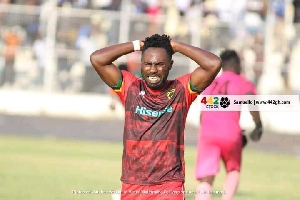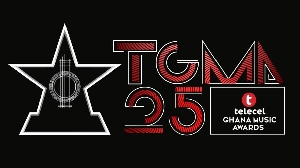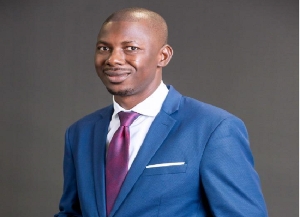Business News of Tuesday, 24 September 2019
Source: thebftonline.com
Fix Western Railway line and roads to see respite - GMC CEO
Miners have stressed the need for government to fix the Western Railway lines so that roads in the Western and Western North Regions – which bear the brunt of heavy trucks transporting manganese ore and other raw materials – will get the required respite and last longer.
Benjamin Atsu Quarshie, Chief Operating Officer of the Ghana Manganese Company (GMC), noted that there are so many trucks on the Tarkwa-Takoradi road simply because the railway lines connecting the mines to the port need urgent rehabilitation.
“Our mode of haulage is 90 percent by road; but if the railway line is improved, it will help us reduce cost and take away the nuisance caused by haulage trucks on the road. That is something we have to look at,” he said.
He was speaking at a two-day tour of mining areas in the Western Region organised by the Ghana Chamber of Mines, the mining industry lobbyist for the Parliamentary Select Committee on Mines and Energy. The MPs toured the manganese mine in Nsuta, and gold mines in Iduapriem, Prestea, Damang and Wassa.
To back his claim for rail instead of roads, Mr. Quarshie, pointed out that the cost per tonne to haul manganese from the mine to the port is US$7, but by rail it is US$5.9. “If we are doing 5 to 7 million tonnes per year, that is a lot of extra cost into haulage.”
Ghana Manganese, he noted – realising that haulage by rail is very important and the most efficient, gave government US$10million to support rehabilitation of the railway line. “Unfortunately, till date, nothing concrete has been done to justify that expenditure. We gave it to Ghana Railway Authority two years ago.”
Sulemanu Koney, CEO of the Chamber of Mines, explained that regarding the business model of GMC, the preferred means of haulage is rail. To him, there has been lot of talk and update regarding the Western Rail line, but what the industry cannot understand is why it is taking forever for it to be functional.
“Looking at the volumes coming from Ghana Bauxite and Ghana Manganese, it is better and cheaper for them to haul their goods by rail; and this will spare our roads all round. Let us expedite action to complete rehabilitation of the rail lines,” he added – noting that in the design, government should make sure it is not just for freight but also for carrying passengers.
“The benefits are enormous, and so we should look at the volumes of Ghana Manganese and Ghana Bauxite and fix the rails,” he said.
The tour
Mr. Koney explained that the tour of mining areas seeks to acquaint the lawmakers with operations of these mining firms and the challenges they are facing; and how they can be resolved by informed policymakers.
“We had various options: one of them was to meet the committee in Accra or come with them on a mining tour, and we thought that coming on a tour would be better and afford them the opportunity to see operations for themselves and engage with our member-companies for them to discuss challenges the companies have.
“Out of these deliberations, we should come out with solutions to the problems and work hand in hand with mining firms and assemblies to see a lot of development in communities and security in the mines, so they can work with peace of mind,” he added.
MPs were told about community engagement activities by the mining companies, incursions onto their concessions by galamsey operators; and saw relocated communities and some mining pits – and even found time to experience some underground mining at the Wassa Mine of Golden Star Resources.











